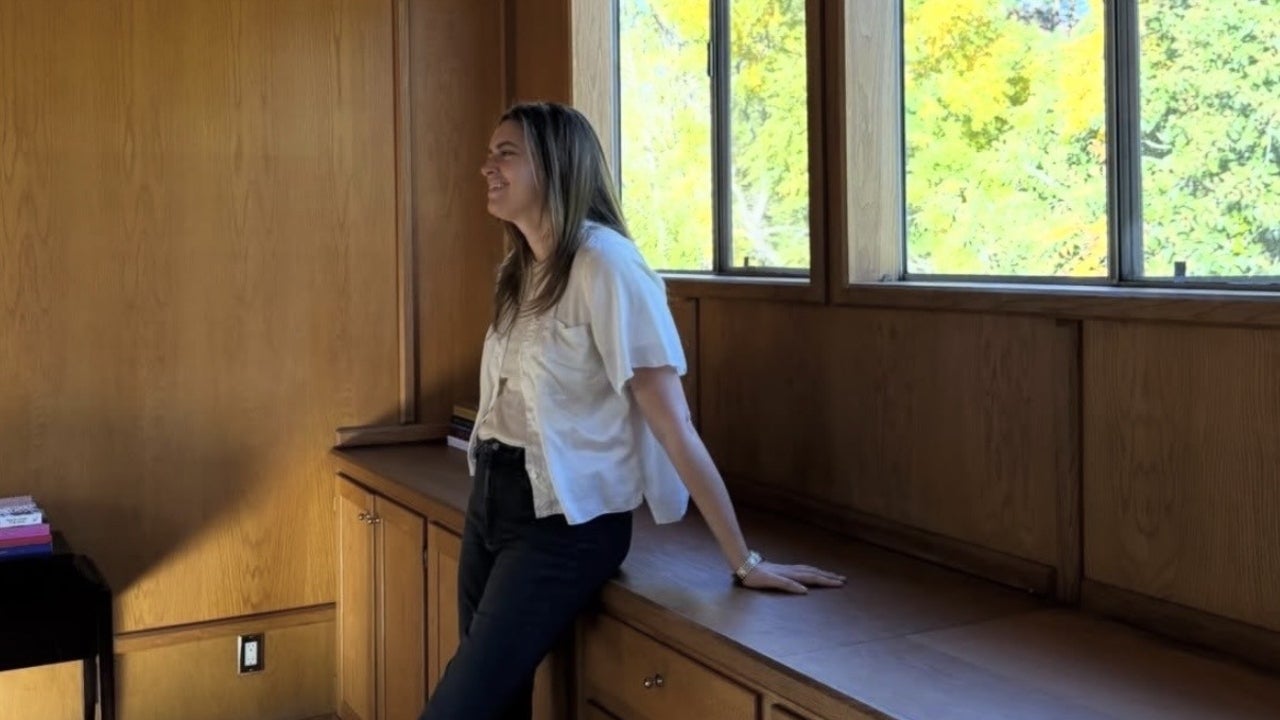Riyadh Comedy Festival Cancels Tom Dillon Like a Bad Joke
The Riyadh Comedy Festival 2025 pulled a move that has the comedy world buzzing. Organizers canceled Tim Dillon like a bad joke, and the news spread fast. Dillon was set to headline at Boulevard City in Riyadh, Saudi Arabia....

The Riyadh Comedy Festival 2025 pulled a move that has the comedy world buzzing. Organizers canceled Tim Dillon like a bad joke, and the news spread fast. Dillon was set to headline at Boulevard City in Riyadh, Saudi Arabia. But after he joked about slavery and forced labor in Saudi Arabia, the festival cut him from the lineup. The reaction has sparked debates about free speech, money, and the role of comedy in a kingdom eager to show itself to the world.
The Big Festival in the Desert

The Riyadh Comedy Festival 2025 is promoted as the world’s largest comedy festival. It runs from September 26 to October 9, bringing over 50 comedians to Riyadh. Shows will happen at the Bakr Al-Sheddi Theatre, the ANB Arena, and across Boulevard City. The lineup is stacked with major names: Kevin Hart, Russell Peters, Gabriel Iglesias, Pete Davidson, Whitney Cummings, Dave Chappelle, Bill Burr, and Louis C.K. Fans will also see Jimmy Carr, Tom Segura, and many more.
The event isn’t just stand-up. Comedy workshops, sketch performances, satire, improv, and even family-friendly shows are part of the program. Organizers hope to create a comedy buffet that draws global attention. The festival also includes training sessions for new talent, giving young comedians a chance to learn. The scale of the event is massive, and it shows how serious Saudi Arabia is about entertainment. Still, despite the glitter and glamour, Dillon’s firing has become the real headline.
Why Tim Dillon Got Dropped

Tim Dillon has built his career on sharp humor and blunt honesty. His podcast often mixes biting commentary with outrageous observations. Before the festival, he joked about slavery and forced labor in Saudi Arabia. He even told listeners he had been paid $375,000 to perform in Riyadh. His comments mocked how money can buy silence. Organizers reacted fast. They removed him from the festival to protect its image. For Dillon, it was another headline moment. For Saudi Arabia, it showed that free speech and comedy can clash with politics.
The Saudi Angle
Saudi Arabia’s Vision 2030 drives events like the Riyadh Comedy Festival. The plan focuses on diversifying the economy and building a global image for the kingdom. Concerts, LIV Golf, Formula One races, and Abu Dhabi partnerships are all part of the strategy. Comedy now joins the lineup of entertainment tools used to promote Saudi Arabia.
But critics see another story. Human Rights Watch and other groups say these events distract from real issues. They argue the Saudi royal family and the Saudi government use entertainment to deflect attention from human rights abuses. They point to torture, restrictions on speech, and the silencing of journalists. Dillon’s jokes hit at this exact criticism, and his removal proves how sensitive officials remain. Riyadh may open its doors to entertainment, but it has not opened them to criticism.
Who’s Still In?
The lineup without Dillon remains powerful. Russell Peters, Gabriel Iglesias, and Pete Davidson top the bill. Bill Burr, Tom Segura, Whitney Cummings, and Jimmy Carr are also performing. Other names include Jeff Ross, Chris Tucker, Bobby Lee, Jo Koy, Aziz Ansari, Andrew Schulz, Sebastian Maniscalco, Nimesh Patel, Mark Normand, Chris Distefano, Sam Morril, Hannibal Buress, and Jessica Kirson. Over 50 comedians are scheduled to perform.
The range is wide. From edgy stand-up to family comedy, the schedule aims to please all audiences. Boulevard City will host the biggest shows. Workshops and smaller events will give fans more ways to experience the festival. The star power is undeniable, yet Dillon’s absence casts a shadow. Fans wonder if other comedians will speak out or stay silent.
The Free Speech Question
The debate is clear: should comedians just perform and keep politics out? Or should they use their platform to challenge systems? Dillon chose the second path. His decision cost him a paycheck but earned him credibility. Bill Burr has built his career by ignoring taboos. Jimmy Carr thrives on edgy humor. But in Riyadh, the rules are different. Free speech doesn’t carry the same protection as in the West.
Fans around the world ask tough questions. Are comedians betraying their art by staying quiet? Or is comedy simply about making people laugh? The Riyadh Comedy Festival forces this question into the spotlight. Dillon’s firing highlights the tension between entertainment and expression.
ALSO READ: Jimmy Kimmel Show Canceled After Comments On Charlie Kirk
The Critics Speak

Human Rights Watch has condemned the festival. They argue that the Saudi royal family uses it to polish its image. Activists say comedians should refuse the money and speak up about abuses. Journalists call it a mistake to perform in Saudi Arabia under these conditions. They highlight the lack of freedom of speech and the government’s control. Dillon’s firing gave critics more proof. For them, it showed how comedy cannot exist freely in Riyadh.
Local Talent and Global Spotlight
The Riyadh Comedy Festival also promotes local talent. Saudi comedians and Gulf region performers will share the stage with global stars. Organizers have planned improv classes, sketch workshops, and mentoring sessions. The idea is to build a local comedy scene that gains recognition worldwide. For young comics in Riyadh, this is a rare chance to grow.
But critics note limits. Local comedians cannot joke freely about the Saudi government, the royal family, or human rights. While the stage is open, the content remains restricted. The growth of Riyadh comedy is real, but the boundaries are clear.
Audience Reaction
Reactions to Dillon’s firing have been intense, and the conversation is far from simple. Some fans argue Dillon knew exactly what he was doing. They believe he took the risk knowingly and crossed a cultural line he couldn’t return from. For these critics, the firing feels justified. They say he signed up for the festival, knew the boundaries, and still chose to provoke.
Others view him as bold and brave. These fans say Dillon proved that comedy can still rattle powerful systems. They see his joke about slavery as a test of free speech in a setting where it is often restricted. To them, his removal shows that his comedy struck a nerve, and that’s the job of a comedian. On podcasts, blogs, and social media, debates rage about whether his move was reckless or revolutionary. Some call it a mistake, while others call it a defining career moment. Either way, Dillon now gets more attention than many comedians who remain in the lineup. His absence, ironically, has made him the most talked-about performer of the entire event.
Comparing to Other Events
Saudi Arabia has faced criticism for several entertainment efforts, and the Riyadh Comedy Festival adds to that list. LIV Golf has been accused of sportswashing. Concerts featuring international stars have sparked global debates about ethics. Abu Dhabi events linked to Saudi partnerships also fall under scrutiny. The pattern is consistent: Saudi Arabia invests in global entertainment to reshape its image.
Critics argue that each event is designed to deflect attention from human rights concerns. They say festivals, concerts, and tournaments are more about image management than art or sport. Supporters push back, saying audiences deserve entertainment, and that culture should connect people across borders. The Riyadh Comedy Festival now sits at the heart of this recurring argument. To some, it is simply a comedy festival. To others, it is another calculated effort to shift the world’s focus away from abuse and censorship.
What’s Next for Dillon?

Dillon has never been afraid of controversy, and this episode fits perfectly into his brand. His podcast already attracts loyal listeners who expect him to challenge power. Now, his firing adds credibility to his reputation as a fearless comedian. Fans admire his boldness and are rallying behind him.
Losing a $375,000 paycheck is a blow, but the publicity may prove more valuable. Comedy thrives on attention, and Dillon now has more of it than ever. His story adds to his persona as a comic who refuses to play by the rules. For Dillon, the Riyadh cancellation could serve as the best promotion of his career. Instead of silencing him, it amplified his voice on the global stage.
Should Comedians Take the Stage?
The bigger question looms: should comedians perform in Saudi Arabia at all? Some argue that global stars like Dave Chappelle, Kevin Hart, and Gabriel Iglesias bring joy to audiences in places with limited entertainment. They say comedy should cross borders, and laughter should be shared no matter where.
Others see it differently. They argue that performing in Riyadh helps the Saudi government whitewash its abuses. They call it a mistake to take money from a system that restricts free speech. Dillon’s cancellation has forced this debate into the open. Now, every performer in the festival faces tough questions from fans and critics alike. For some, taking the stage is harmless. For others, it is a compromise that cannot be justified.
The Riyadh Comedy Festival will still go forward as one of the biggest entertainment events in the world. Riyadh is buzzing, tickets are selling, and stages will be full of laughter. Yet Dillon’s firing has changed the entire narrative. The festival is no longer just about jokes and entertainment. It is now about free speech, human rights, and the decisions comedians make when they accept or reject a stage.
Dillon may not appear in Riyadh, but he still dominates the spotlight. His absence speaks louder than any set he could have performed. Even canceled, he transformed the festival into a global debate about comedy, freedom, and the price of silence.

 MikeTyes
MikeTyes 
































